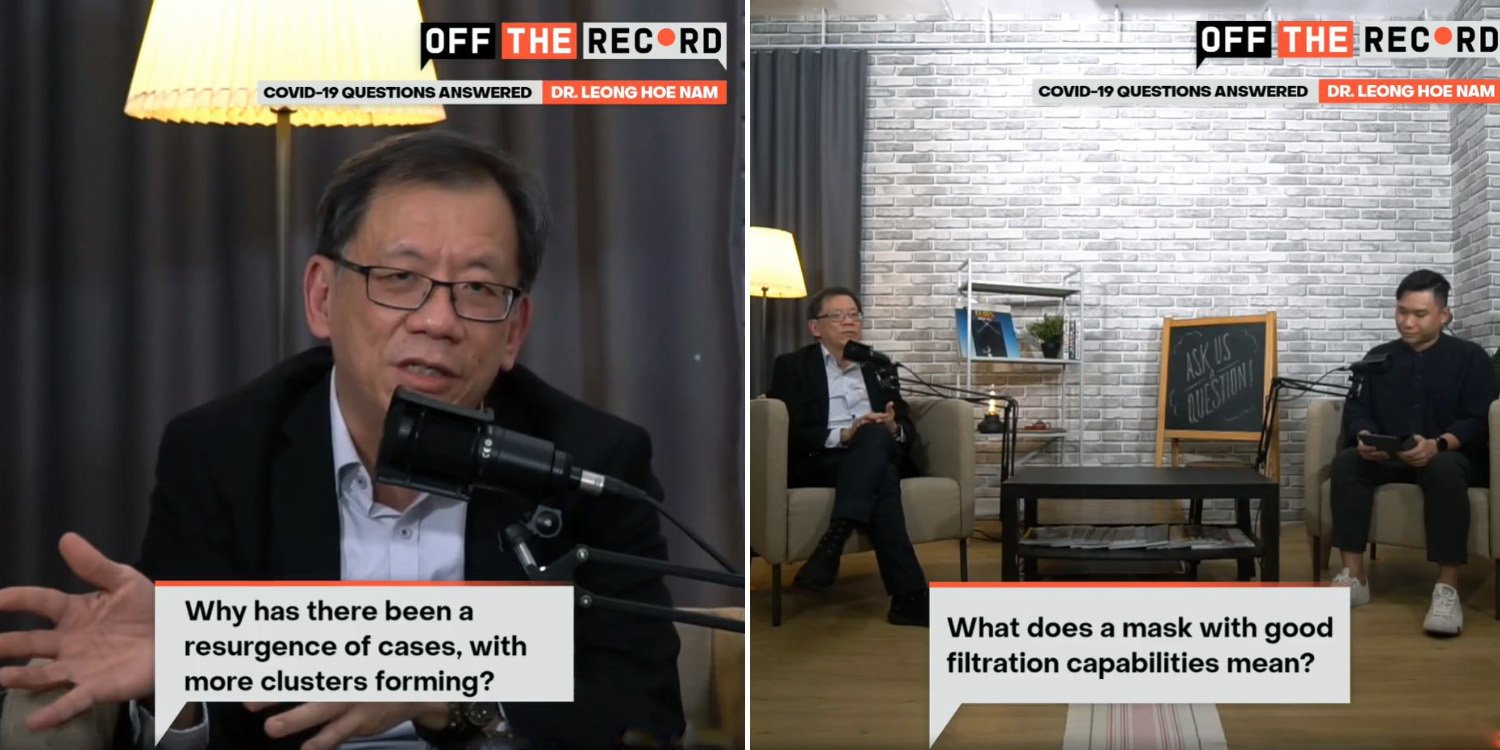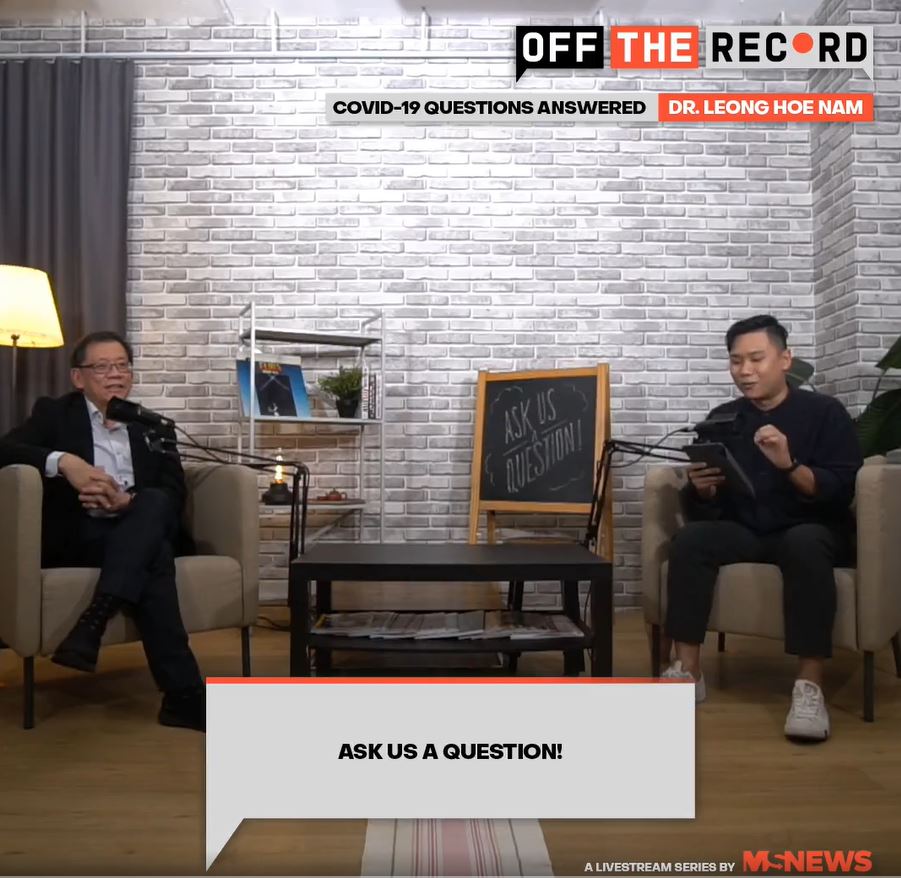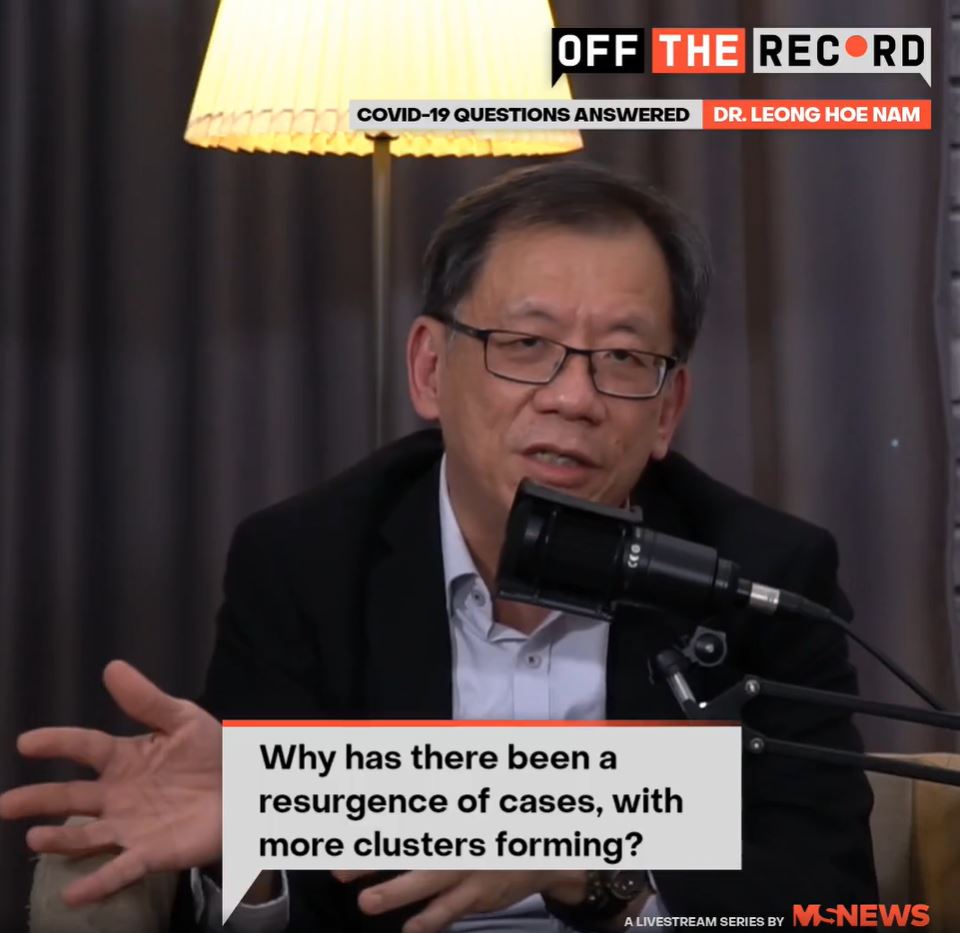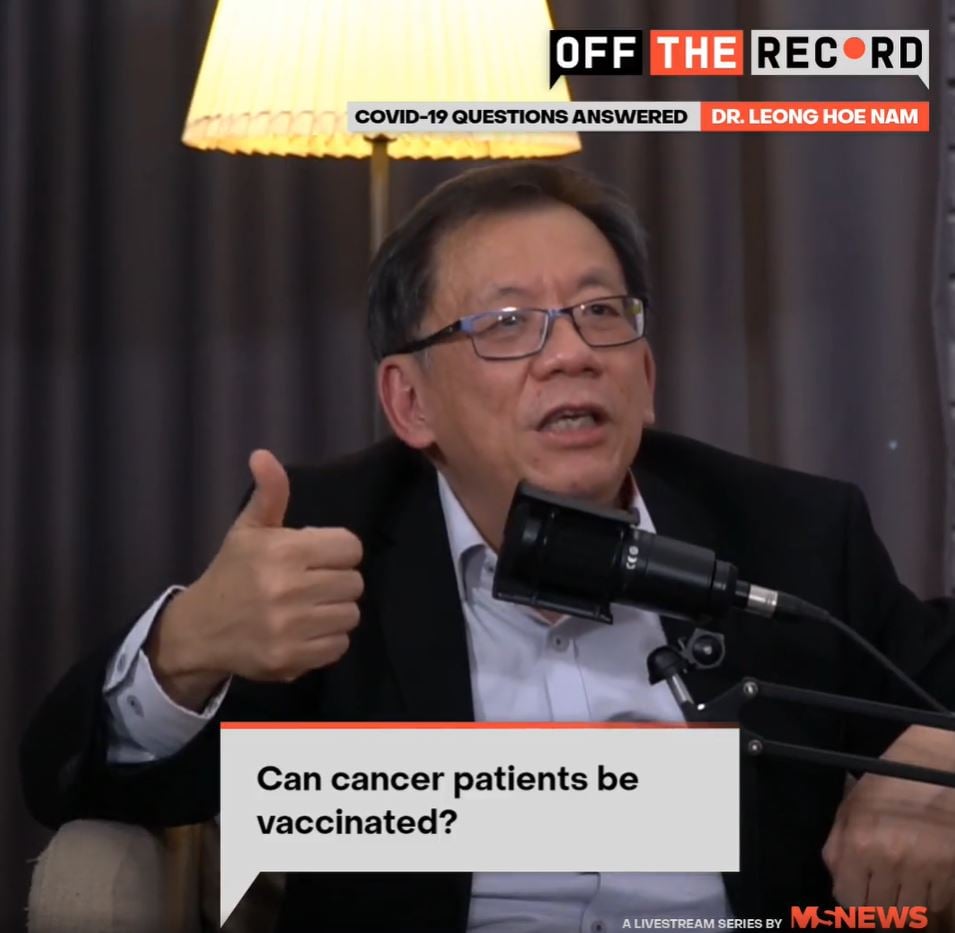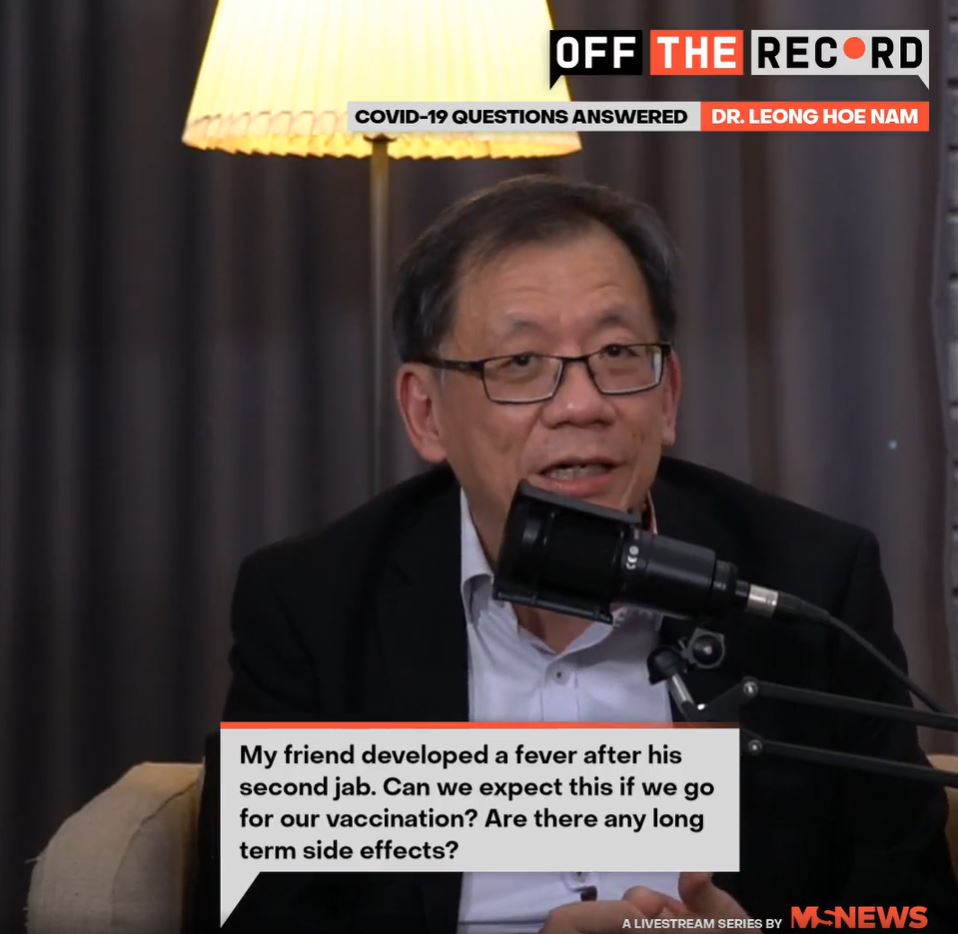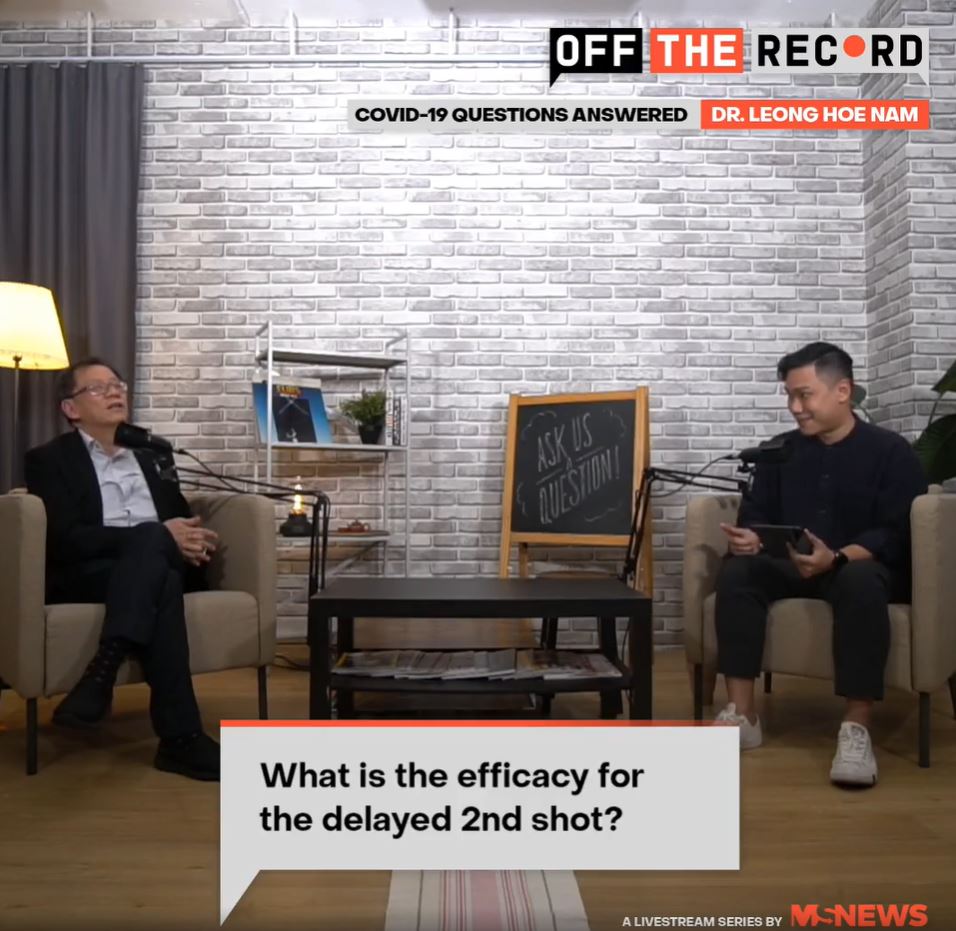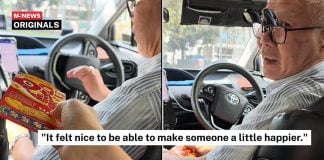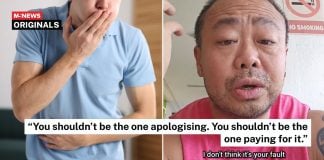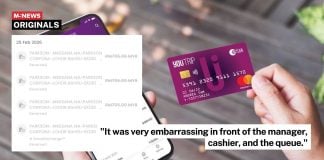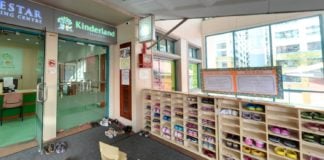Infectious Disease Specialist Dr Leong Hoe Nam Answers 15 Common Covid-19 Questions
It’s been a year and a half, yet Covid-19 shows no signs of abating as it sweeps across the world, infecting more people at an alarming rate every day.
In fact, an infectious disease specialist in Singapore told us that the virus wants 2 things: Dominating the world and infecting as many people as possible.
So how can we defend ourselves in the face of an invisible enemy?
We unravel the web of mystery and confusion with Dr Leong Hoe Nam, who joined MS News in its debut series Off The Record on Saturday night (29 May).
In case you missed it, here’s the TLDW – Too Long, Didn’t Watch – version of his Q&A.
Infectious disease specialist Dr Leong Hoe Nam answers our questions
If Dr Leong Hoe Nam’s name sounds familiar, that’s because you may have seen him on mainstream media like The Straits Times, Channel NewsAsia (CNA), and even Gov.sg.
As an infectious disease physician, he has been offering his insights on the novel coronavirus since it reached our shores.
He engaged MS News host John Lim in an animated hour-long interview, responding to burning Covid-19 questions from readers and peppering his answers with amusing analogies for easier understanding.
The answers below are paraphrased for clarity and accuracy. You can check out the full interview here.
Q: Why has there been a resurgence of cases with more clusters forming?
A: Covid-19 is like any other species. It wants to survive and live on. It’s mutating and adapting, but we humans aren’t.
It’s like a shooting game. If I keep shooting things the same way, you overcome me. The virus will adapt, change, and try to hit us by becoming more transmissible.
Q: The B1617 variant appears to be very infectious. Is this cause to be afraid?
A: Viruses are going to adapt and change again and again. After this battle of B1617, there will be yet another one that’s even more potent. So the next strain that comes will have more transmissibility. We need to get ready for the next wave.
By getting ready, I mean no toilet paper, no instant noodles. Getting ready means getting vaccinated. The vaccine changes a serious illness into a mild illness, and then a mild illness into nothing.
In other words, a serious, life-threatening illness is now changed into a common cold.
This is similar to the ‘bark and the bite’ scenario. Vaccines take the teeth out of the bite, so we’re left with just the bark. You don’t really end up sick when you’re vaccinated. But if you don’t get vaccinated, you end up falling really sick.
Q: How does ventilation affect the way the virus spreads?
A: Ventilation indoors: Bad, bad, bad. Ventilation outdoors: Great, lovely.
When you’re indoors, the air is stagnant, doesn’t move around, so the virus clings on better. And it likes air-conditioning, just like almost every Singaporean.
But if you put it out in the sunny weather of Singapore, it will die very quickly. Even if it doesn’t, the wind and air will come in, diluting the virus and turning it harmless.
Q: Can cancer patients be vaccinated?
A: Actually, cancer itself isn’t the contraindication. When I say contraindication, that means it’s a direct clash. Instead, we’re worried that chemotherapy will weaken the immune system in such a way that cancer patients won’t be able to mount an adequate response.
It’s the body’s response that we’re worried about, rather than the vaccine that causes harm to the individual. If the vaccine isn’t going to be very effective, your antibody response isn’t that good, then why give it?
It’s the same as I’m not going to enjoy the bowl of laksa noodles, so why eat it now? I can order when I can truly enjoy it, when my appetite is back and when I’m more ready for it.
Q: There has been news that vaccination may lead to heart attacks or strokes. Is this true?
A: The funny thing is everyone assumes that after vaccination, nothing else happens. Life goes on, and you won’t have any heart attacks or strokes, etc. But that’s far from the truth.
You can still get strokes or heart attacks with or without the vaccine.
If you really want to look at the science of it, look at the number of strokes and heart attack cases before vaccination started and compare it with Jan-Mar this year. Then if you realise this year, from Jan-Mar, we are getting a lot more heart attacks and these individuals appear to be related to vaccines, we may have a signal.
But let’s assume there’s a little bit of signal for vaccine-related heart attacks, and the risk is 1 in 1 million. In 6 million, 6 will get a heart attack. It’s potentially alarming, but I will not be too worried because if I were to get Covid-19, my risk of dying – with all things being equal – is at least 1%.
So it’s a trade-off between a 1% death risk and a 1-in-a-million chance of a heart attack, and if I’m vaccinated, I know for sure I no longer have the 1% death risk.
On Singapore roads, the chance of you dying from a traffic accident is 21 in 1 million. So if you’ve crossed the road today, you’ve taken more risk compared to taking the Covid-19 vaccine.
For people who smoke, the risk of death is more than 2,000 per million.
Q: My friend developed a fever after his second jab. Can we expect this if we go for our vaccination? Are there any long-term side effects?
A: If you had a fever, then congratulations, you have the real deal. Even if you didn’t get it, don’t worry about it. Only about 60-70% do get some reaction. The remaining 30% are fortunate that they don’t get a reaction.
Whether you’re young or old, you’ll have an adequate antibody response.
In vaccinology, most side effects happen within 2 weeks, and in rare cases, within 3-4 months. The Covid-19 vaccine has been around for 6 months, and chances are up to 6 months, it is safe.
Scientists started injecting mRNA into mice as early as the 1970s. They started trials in humans as early as 2013. This means there are at least 7-8 years of data on the safety of mRNA vaccines.
Physician Explains Why Pfizer & Moderna Vaccine Side Effects Are Proof That They’re Working
Fast forward to 2021, we’ve given it to more than 150 million people worldwide. So far, it has been fine. The more you adapt well to this vaccine, the safer it is for the country you live in because the number of cases will fall. Despite this, I accept that the vaccine doesn’t have long-term data. So, watch this space as HSA is interested, and so am I.
Q: What if I choose to wait and observe?
A: The virus is like a tiger. It’s going to prowl along the perimeters of Singapore, weave in and out of malls, and if you’re not vaccinated, it will hunt you down, take a bite, and you’ll fall sick.
The only way out of this mess is vaccination. Vaccination takes the teeth out of the virus, the bite becomes a bark, everyone has at most a common cold, and life goes back to normal.
Masks still go on, though, just in case one of us is the odd case of transmitting the virus to someone else.
Q: What does a mask with good filtration capabilities mean? Should I still wear a cloth mask?
A: Cloth masks aren’t certified. We need to use masks that are certified, so we get exactly what we asked for. If you still wish to wear a cloth mask, I suggest wearing a qualified surgical mask beneath, followed by the cloth mask outside. So you’ll look pretty while still getting the filtration needed.
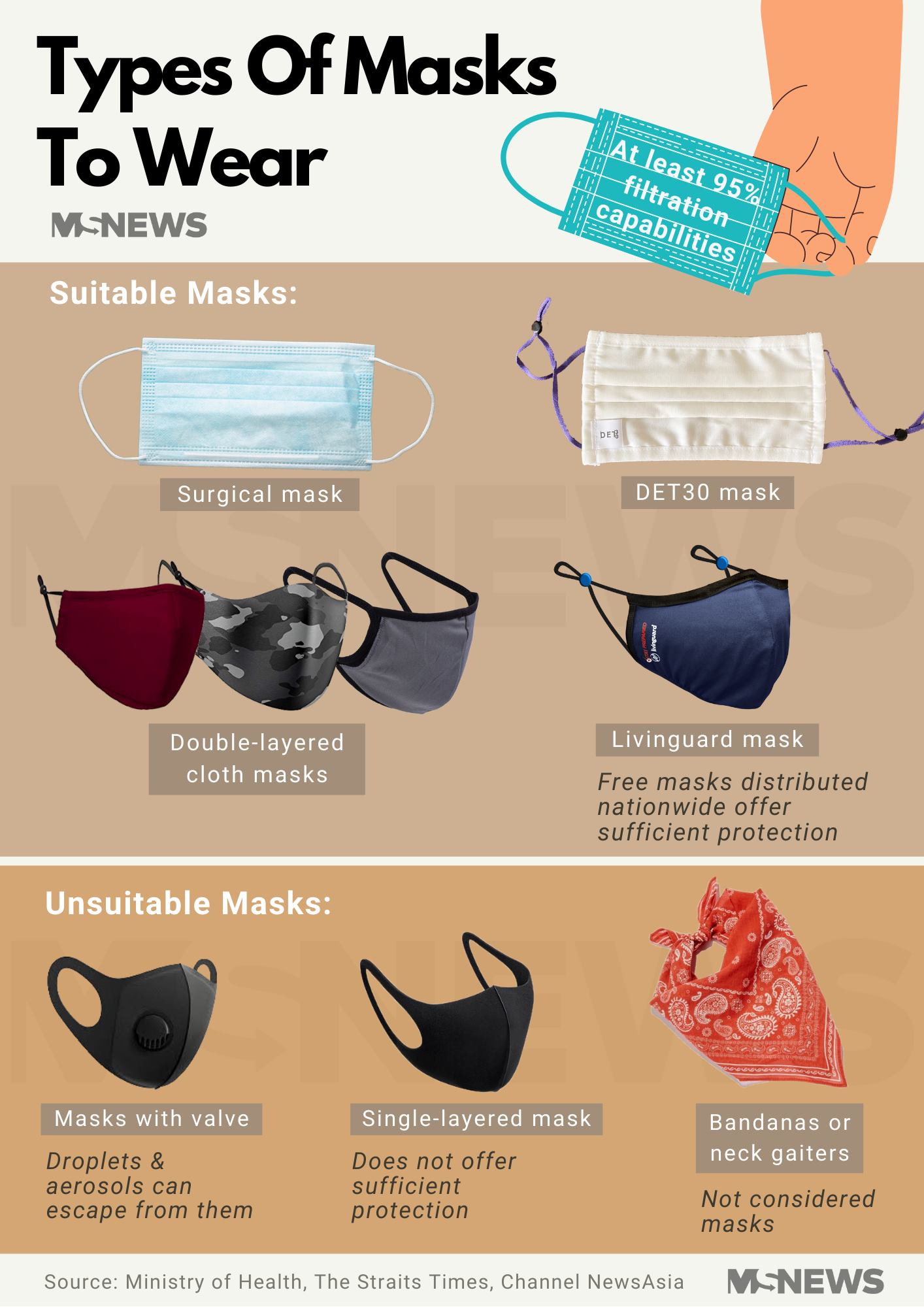
We are failing in our prevention of B1617 because we have become more concerned with the cosmetic aspect of masks rather than the actual protection.
Q: We have seen breakthrough cases where vaccinated persons were also infected. How effective is the Covid-19 vaccine?
A: We should still get the vaccine. We had a study done on healthcare workers showing that in the case of prevention of transmission to family members, the risk was about 54%. To colleagues and other healthcare workers, it’s at least 92%.
This shows that transmission rates dropped from 100% to 54%. Think about it, 50% efficacy. I will take it.
The reason the vaccine hasn’t been so efficacious is simply because the target has moved.
In schools, if you prepared your syllabus, you’re going to get 100 marks. Now, what happens if the examiners changed the syllabus? Are you able to score 100 marks? No, because you’re spotting the wrong questions. So we missed a bit, and that’s expected, but our capture rate isn’t considered bad. I’m still getting protection, and I’m still preventing myself from falling sick with the vaccine.
Would the virus mutate against the vaccine? It will try to, and the only way we can prevent that from happening is if everyone gets vaccinated quickly with a good vaccine.
We should also wear masks to prevent transmission. Mutants come about through replication, and if there’s no replication, there are no mutants.
Replications only happen inside hosts, so if we don’t allow that from happening by wearing a mask & getting vaccinated, that won’t happen.
Q: Would being alert when you’re unwell & being meticulous with how you behave, i.e. seeing a doctor when you have symptoms, a good strategy for all citizens?
A: This is a necessary behaviour of a good Singapore citizen. To eliminate the virus, we need everyone to be on detection alertness. The moment you have a sore throat, cough, or runny nose, you go for a swab test. If you test positive, you’re being isolated to stop the transmission.
Once the transmission stops, the replication stops, and the mutants cannot live. In other words, we have knocked the teeth out of the virus, and we cut down the transmission rate, and Singapore is safe.
So when you fall sick, and you see a doctor, you’re doing it not so much for yourself—you’re doing it for the love of your people and the love of your nation.
Q: What are the processes of getting a vaccine approved? Is it safe to use since it’s so rushed?
A: Every vaccine or drug that enters Singapore has to go through the same approval process. HSA isn’t only interested in a clinical trial that shows its efficacy but also the side effects, how the vaccine or drug was manufactured, and if there were any quality checks.
The criteria are as such:
- Ensure vaccine manufacturer is certified with all equipment credentialed and quality checked. We want proof that the vaccine works even after 3-6 months.
- Ensure the vaccine goes through its trials correctly. This means ascertaining that no money underneath the table was involved and that we have robust data.
AstraZeneca vaccine isn’t approved in Singapore as there were issues.
This non-approval also tells me that the reporting structure we have in place is correct. When something happens, we are informed of the problems. This gives us better confidence that the mRNA vaccines are safe.
Q: What is your opinion on vaccination for children from 12 to 15? Is it safe?
A: The immunology of those aged 12-15 is similar to an adult. For those younger than 12, the immunology is a bit different because they may need more shots or fewer shots.
We tested the vaccine on kids aged 12-15, and they had no issues. We looked at the biological behaviour of the vaccine and found that it doesn’t affect the reproductive system and growth hormones.
You can still maintain your K drama actor/actress height or good looks. With the trial’s backing, I say go ahead.
Q: Can Covid-19 be easily transmitted through surfaces?
A: At this point, scientists don’t think surfaces are a major mode of transmission. But don’t be silly. If you see someone spit on the table, it doesn’t mean you should take it up and smell it. You are going to get an infection that way.
Make sure you have clean hands all the time. Your face is sacred. Before you touch your face, wash your hands with alcohol water, then you’re very safe.
Q: How to convince the elderly to go for the vaccine?
A: Tell your mum, dad or grandparents that Covid-19 is coming, and it will eventually hit everyone in Singapore. If you’re not vaccinated, you will get hit, and uncle auntie will have a greater risk of dying. The 1% death risk is on average, but if elderly folks get the infection, it will become 5%, 10% or even 15%.
Tell your parents/grandparents don’t fall sick because if you fall sick, you’ll pass it to your grandchildren, the very people you love, you spend time with them, and you don’t want them to fall sick, right?
Q: What is the efficacy of the delayed second shot?
A: If you take the second shot too quickly after the first, the antibody responding the first time will act as a block for the second dose. Hence, rendering the antigens from the second dose less effective.
So too close is no good. But in the context of booster shots for Hepatitis A and B or MMR vaccines, booster shots always come at 6 months. When you delay it, you allow your body to forget it for a while, so when you get hit again, the body remembers it much better and can generate a much stronger immune response.
If there was no pandemic and we could do this at a leisurely pace, I would do it in 6 months. But we are racing against time to beat the mutation of the virus. If we don’t do it fast enough, those half vaccinated with one dose will end up getting a half-done job.
Standing against Covid-19 as a united, vaccinated nation
Before ending his interview, this is what Dr Leong has to say:
Singapore, you have suffered. There’s no doubt about it. We all know someone who lost their jobs, who are struggling along, and I know of people who worry about the next meal for themselves or their family.
We need to rise above Covid, and the ability to do it is before us. One arm is vaccination, and the other arm is masks, safe distancing, and clean hands.
If we do these with 2 arms together, we are literally raising our arms in defence of Singapore against an enemy we cannot see, an enemy that’s mutating that wants to adapt to us and put us under the yoke of repeated infections.
I’m thankful we have vaccinations available. If all of us were to work together, our arms up and interlocked, because we are building up herd immunity when we are all vaccinated with masks and safe distancing. The virus is nothing against the strength of a cooperative, helpful, vaccinated, and strong Singapore.
Covid-19, Covid-21, Covid-23, I say bring it on. The roar of Singapore is so much stronger than your bark because your vaccine has taken the bite out of it. I can’t do this alone. It takes 2 hands to clap. I need all of us to work together. When you stand up, wear your mask, do social distancing, get vaccinated, then my friend, you have called yourself a true blue Singaporean.
Watch the full interview here:
Off The Record is a new livestream series featuring a special guest every Saturday to address trending and emerging public concerns.
Stay tuned this coming Saturday at 8pm for the next episode.
Have news you must share? Get in touch with us via email at hello@mustsharenews.com.
Featured image by MS News.
